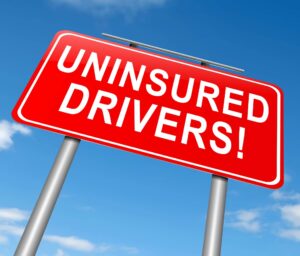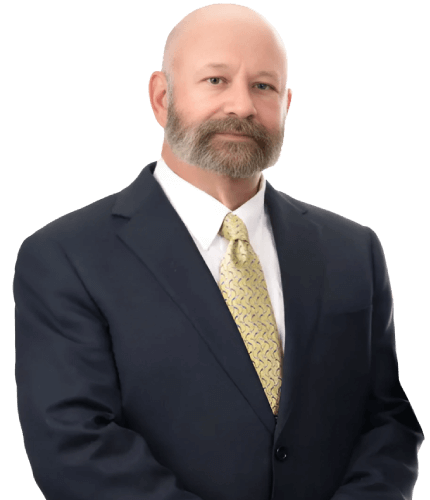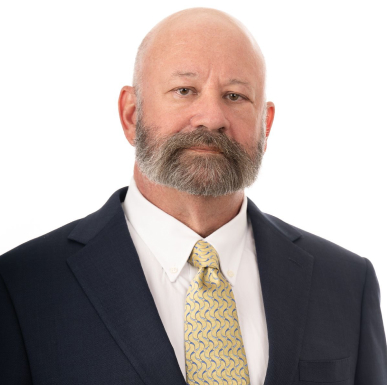
Driving Florida’s busy highways and streets always comes with some risk that another motorist could make a reckless error that puts your safety at risk. While we all hope to avoid automobile accidents, the grim truth is that collisions happen, and some drivers lack adequate insurance.
If you get hit by a negligent driver, you want assurance that their liability coverage can fully compensate you for accident-related damages—but what if their coverage falls short? Florida’s underinsured motorist coverage is your best bet at being compensated.
In this guide, our Florida uninsured motorist accident lawyers will explain what underinsured motorist coverage is, how it works, key benefits, and tips for obtaining adequate underinsured protection in Florida’s uncertain driving environment. Don’t get left footing the bill for someone else’s mistake.
Understanding What Uninsured Motorist Coverage Is
If a driver without insurance causes a crash and injures you, uninsured motorist (UM) coverage in Florida offers important financial protection. If an at-fault uninsured driver leaves you in need of vehicle repairs or with a bodily injury, a personal injury lawyer can evaluate your auto insurance policy claim with you.
What Uninsured Motorist Coverage Covers in Florida
If you sustain injuries in a collision due to a driver without insurance, Florida’s uninsured motorist coverage offers additional financial security. The following economic damages and non-economic losses are both covered under a Florida UM policy:
- Medical bills: Covers hospitalization costs, surgery, rehabilitation, physical therapy, prescription medications, and other medical needs for crash-related injuries.
- Lost income: This coverage reimburses lost wages if injuries prevent you from working during recovery and rehabilitation.
- Pain and suffering: The policy compensates for physical pain and emotional trauma caused by the accident.
- Funeral expenses: The policy pays for funeral and burial costs if a covered person dies in the accident.
- Wrongful death damages: Compensation for damages like lost companionship to surviving family members if a death occurs will be awarded.
- Property damage: Repairs or replacement costs for your vehicle, up to your UM property damage policy limits, may be recovered.
- Loss of services: This covers losses if an injured person can no longer provide household services like childcare.
Insured individuals can recover fair compensation from their insurance company when an at-fault uninsured driver causes financial and personal hardships.
Does Florida Require Uninsured Motorist Coverage?
Florida does not mandate that all drivers carry uninsured or underinsured motorist (UM) coverage, but the state requires insurance companies to offer this valuable protection to all auto insurance policyholders.
- Florida law states insurers must provide UM coverage options up to the bodily injury liability limits selected. Many experts advise matching your UM and liability limits.
- Drivers can reject UM coverage in writing, but this is typically inadvisable given Florida’s high rate of uninsured motorists. Rejection forms must be signed each TIME THE COVERAGES ARE CHANGED.
- UM coverage extends to the policyholder, family members, vehicle passengers, and anyone entitled to recover damages from the at-fault driver.
While technically optional, uninsured motorist coverage is crucially important in Florida. Consult with your insurer to ensure you have sufficient coverage, as low minimums leave you vulnerable. UM protection is inexpensive peace of mind.
Is Uninsured Motorist Coverage Needed with PIP?
While Florida’s no-fault Personal Injury Protection (PIP) coverage provides some benefits regardless of fault, PIP alone is insufficient protection given Florida’s many uninsured drivers. While it’s not required, having uninsured motorist coverage in addition to PIP is extremely beneficial.
PIP may cover up to 80% of medical costs and 60% of lost wages, but it does not compensate for pain and suffering or property damage. Additionally, PIP has limits. That’s why uninsured motorist coverage is a critical supplement. UM protects you when an uninsured or underinsured driver causes an accident.
It covers injuries, lost wages, pain and suffering, funeral costs, and vehicle damage—losses not addressed by limited PIP benefits. Florida law wisely mandates PIP, but adding robust UM coverage is the only way to fully protect yourself in Florida’s risky driving environment with many uninsured motorists.
Can I File a Claim If I’m Partially at Fault for the Accident?
Florida follows modified comparative negligence rules, which means you may still be able to receive compensation from your uninsured motorist coverage even if you were partially responsible for the accident.
- You can receive compensation from your UM insurer with your proportionate share of the blame reduced if your fault is 50% or less.
- So, if you were 25% negligent, your total damages award would be reduced by 25% before your UM insurer paid.
- However, if you are deemed more than 50% at fault, you are barred from recovering any UM compensation.
- Your UM insurance adjuster will investigate the fault and may try to prove you share a high percentage of responsibility. Retaining legal counsel helps ensure fault is accurately assessed.
- An experienced attorney can argue your minimal role in the accident and work to maximize your compensation from UM coverage.
Don’t assume you are ineligible for uninsured motorist benefits simply because you were partially negligent. With strong legal advocates, recovery is often possible in Florida, even with some shared accident liability.
What Steps do I Need to Take to File an Uninsured Motorist Claim?
Follow the following steps to file a successful claim when an uninsured motorist hits you:
- Report the accident: Notify your insurer of the accident as soon as possible, ideally within 24 hours. Provide date, time, location, and basic details.
- Seek medical care: Get any necessary treatment for your injuries and maintain documentation from medical providers. Gaps in treatment can reduce claim value.
- Collect evidence: Gather police reports, photos, witness statements, vehicle damage estimates, and any proof showing the other driver was uninsured and at fault.
- Review policy terms: Check your policy’s claims filing procedure and any requirements, such as providing prompt notice of the loss.
- Submit claim paperwork: Complete your insurer’s claim forms with specifics about injuries, damages, and losses. Include evidence that establishes the other driver’s fault.
- Comply with requests: Cooperate fully with your adjuster’s investigation and requests for documents or recorded statements.
- Negotiate claim: Be prepared to negotiate your claim value with the adjuster and provide evidence to justify your compensation demand.
- Hire an attorney: Retaining legal counsel early in the process can significantly ease the burden and maximize your uninsured motorist policy payout.
When to Seek Legal Help for an Uninsured Motorist Claim
Pursuing compensation through uninsured motorist coverage in Florida can quickly become complicated. Turning to a legal professional for assistance is advisable when your financial losses exceed anticipated settlement offers, when multiple victims or shared fault muddle liability, or if the insurer denies your claim outright.
Statutes of limitation, complex legal issues, catastrophic injuries, and unreasonable insurer tactics all indicate the benefits of legal representation for your uninsured motorist claim. A knowledgeable lawyer will act swiftly to meet filing deadlines, retain experts, and apply maximum pressure on insurers to pay what is owed.
Speak With a Florida Uninsured Motorist Car Accident Attorney Today
Our experienced auto accident attorneys specialize in Florida uninsured motorist coverage cases and will level the playing field against insurers by quantifying lifetime damages, establishing clear liability, and aggressively negotiating a fair settlement. Contact Winston Law before speaking with the insurance carriers regarding your underinsured motorist claim.

